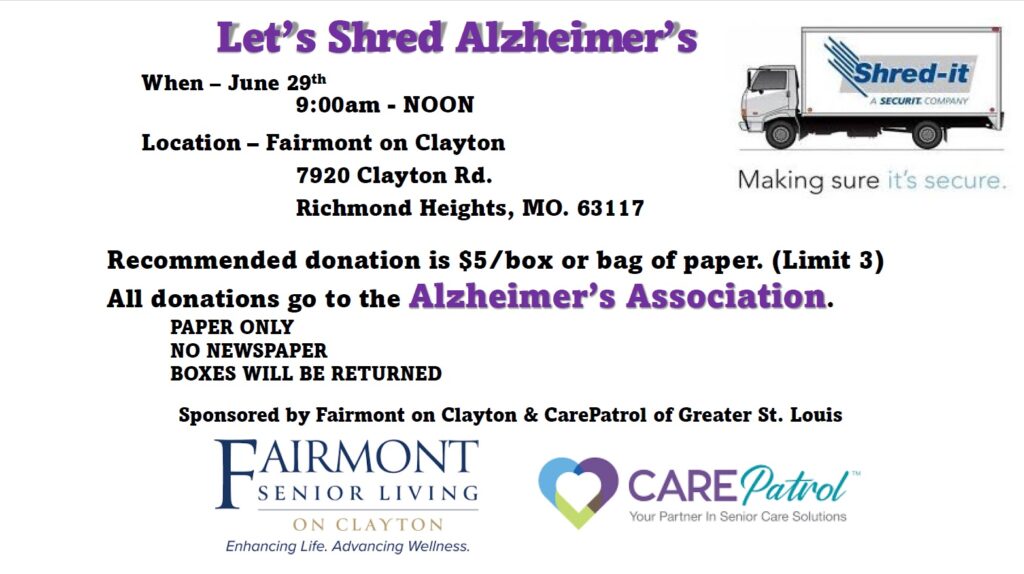Memory loss can be difficult, but there are several ways you can help your loved one navigate through it.
Read on to learn more about how to help someone with memory loss.
Common Signs of Memory Loss
Recognizing the early symptoms of memory loss or cognitive impairment in older adults is vital to ensure prompt medical care and potentially slow down the progression of degenerative brain diseases.
Below are some common signs of memory loss to look out for:
Difficulty With Simple Tasks
One of the early signs of progressive memory loss in older adults is the increasing struggle with everyday tasks. Completing chores they once did with ease becomes a mountain to climb. This may involve activities like preparing a meal, operating a machine, or even driving to familiar places. The struggle with simple tasks is often due to a decline in cognitive function. In the case of dementia, such as Alzheimer’s disease, the brain cells are gradually destroyed, leading to the disruption of thoughts, memories, and tasks. As such, if your family member is spotted with such challenges, a medical assessment should be sought immediately to ascertain the cause and provide necessary intervention.
Frequently Losing or Misplacing Items
As people age, occasional forgetfulness is normal. But when an older adult frequently loses or misplaces items and cannot retrace their steps to find them, it might be a concerning early symptom of a cognitive impairment. Several studies by the National Institute on Aging and other health care teams have connected such habits to early onset dementia. Keep in mind that not everyone who misplaces things has dementia. But when such behavior is coupled with other subtle signs like changes in personality or mood, it’s time to seek medical attention.
Changes in Mood and Behavior
Dementia, particularly frontotemporal dementia, can cause dramatic changes in an individual’s behavior or personality. This could manifest in ways such as a lack of empathy, inappropriate actions or comments, or neglect of personal safety or hygiene.
In many cases, these changes in behavior are wrongly attributed to aging, leading to delayed diagnosis and medical attention. Families and aged care services providers need to be on the lookout for these behavioral changes and take immediate steps to consult a health care professional for an evaluation.
Frequent and Unexplained Mood Swings
Mood swings can occur in any individual, but when older adults frequently switch moods without a reasonable cause, it could be a radar-raising incident. It is especially maladjusted when they sharply switch from being happy and content to suddenly becoming irritable, anxious, or depressed. This could be linked to a number of health conditions, such as dementia where the person might be suppressing emotions due to their inability to remember things. It’s crucial that relatives and caregivers understand that these mood swings might be a cry for help and action to ensure the aging adult gets the necessary medical care.
Discover the signs that it may be time for your loved one to transition to an assisted living facility.
How to Approach Your Loved One About Their Memory Loss
If your loved one is experiencing memory problems, here are some helpful tips for starting a conversation and offering support:
Pick a Place That’s Familiar and Non-Threatening
First, choose a comfortable and familiar place to have a conversation—somewhere they feel at ease and secure. This will help create a relaxed atmosphere where they can open up without feeling threatened.
Find a Quiet Time
Choose a moment when both of you can focus and there are no distractions. This will create a comfortable environment for sharing concerns and emotions.
Choose the Words You Use Carefully
Begin by asking if they have noticed any changes or if they have been feeling different lately. Create a safe space for them to open up. Let them know that memory problems can happen to anyone and that you are there to support them. Listen attentively without interrupting or downplaying their concerns. Validate their feelings and experiences.
Mention Things You’ve Noticed
Carefully mention specific examples or situations where you have noticed changes, emphasizing that you are raising concerns out of love and a desire to help. Approaching the subject with empathy is crucial. Remember, your loved one may feel vulnerable or scared, so it’s important to offer reassurance that you are there for them every step of the way and that seeking help does not diminish their abilities or independence.
How to Help Someone With Memory Loss
Here some next steps to help someone with memory loss:
Visit the Doctor
Visiting the doctor together can be a crucial part of understanding memory loss. Medical professionals are well-equipped to identify the causes and potential treatments for memory loss. They can offer valuable advice on how we can best support our loved ones during this challenging process.
Create Routines
Routines offer familiarity and structure, which can greatly benefit someone with memory loss. By establishing consistent patterns for daily tasks such as eating or taking medication, you can reduce confusion and create a sense of stability in your loved ones’ life.
Consider Transitioning to a Memory Care Facility
Transitioning your loved one to a memory care facility can provide a safe and supportive environment tailored to meet their unique needs. These facilities offer a range of specialized services, including 24/7 supervision, memory-enhancing activities, and trained staff who understand the complexities of memory loss. By joining a community of individuals facing similar challenges, your loved one can experience a sense of belonging and companionship, fostering a positive outlook on life.
Key Takeaways
Are you searching for a memory care community that values independence and engagement for residents with Alzheimer’s or dementia? Fairmont Senior Living on Clayton in St. Louis uses a Montessori-based approach to Memory Care, offering a purpose-driven lifestyle that empowers residents and their families. Contact us today to learn more about how to help someone with memory loss and our memory care community.



